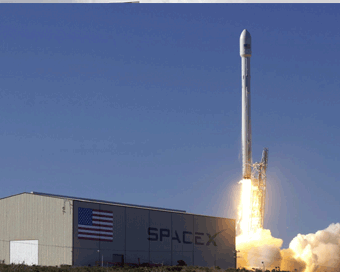 PM Modi visit USA
PM Modi visit USA Only the mirror in my washroom and phone gallery see the crazy me : Sara Khan
Only the mirror in my washroom and phone gallery see the crazy me : Sara Khan Karnataka rain fury: Photos of flooded streets, uprooted trees
Karnataka rain fury: Photos of flooded streets, uprooted trees Cannes 2022: Deepika Padukone stuns at the French Riviera in Sabyasachi outfit
Cannes 2022: Deepika Padukone stuns at the French Riviera in Sabyasachi outfit Ranbir Kapoor And Alia Bhatt's Wedding Pics - Sealed With A Kiss
Ranbir Kapoor And Alia Bhatt's Wedding Pics - Sealed With A Kiss Oscars 2022: Every Academy Award Winner
Oscars 2022: Every Academy Award Winner Shane Warne (1969-2022): Australian cricket legend's life in pictures
Shane Warne (1969-2022): Australian cricket legend's life in pictures Photos: What Russia's invasion of Ukraine looks like on the ground
Photos: What Russia's invasion of Ukraine looks like on the ground Lata Mangeshkar (1929-2022): A pictorial tribute to the 'Nightingale of India'
Lata Mangeshkar (1929-2022): A pictorial tribute to the 'Nightingale of India' PM Modi unveils 216-feet tall Statue of Equality in Hyderabad (PHOTOS)
PM Modi unveils 216-feet tall Statue of Equality in Hyderabad (PHOTOS)Hockey India has announced a 54-member core probable squad for the upcoming senior men’s
- Satwik-Chirag return as BAI names 14-strong squad for BWF Sudirman Cup Finals 2025
- Men’s Sr Hockey Nationals to be played in division-based format from April 4
- Mensik denies Djokovic 100th title in Miami final
- KIPG: Son of a vegetable vendor, Bihar’s Jhandu Kumar eyes Worlds, 2028 Paralympics
- Hardik Singh credits hard work and team unity for receiving HI Midfielder of the Year award
SpaceX to try new launch on Sunday Last Updated : 03 Jan 2017 10:30:02 AM IST 
(file photo) Barely three months after one of its rockets blew up on the launchpad - destroying a $200 million Facebook satellite with it - SpaceX has said that it plans to try again on January 8.
The new launch date was included in a report on Monday that SpaceX released on the explosion of its Falcon 9 rocket at Cape Canaveral, Florida, on September 1, NBC news reported.
The "anomaly" - SpaceX's word - was caused when supercold helium led carbon fibres and aluminium to cool at different rates on the second of the rocket's two stages, the company said.
That opened the gaps between two layers of the overwrap, where liquid oxygen escaped and got trapped, it said.
That, in turn, caused one of the protective layers to "buckle," or fail. Static ignited the trapped oxygen, setting off a chain of catastrophic explosions, SpaceX said.
The Falcon rocket was to have launched an AMOS-6 communications satellite for a Facebook-Eutelsat joint venture to extend Internet access to underserved parts of the world.
Facebook founder Mark Zuckerberg said he was "deeply disappointed" by the loss but promised that "we will keep working until everyone has the opportunities this satellite would have provided."
SpaceX, a private space venture run by billionaire inventor Elon Musk, said Monday that its engineers have managed to rejigger the configuration of the rocket's helium containers, moderating the temperature of the helium and presumably eliminating buckling in the overwrap layer.
If it's successful, the next launch, tentatively schedule for Sunday at Vandenberg Air Force Base, California, will put 10 satellites into orbit to upgrade and replace some of the units in the Iridium Communications satellite constellation, a system of 66 satellites that provide voice and data coverage around the world.IANS For Latest Updates Please-
Join us on
Follow us on








172.31.16.186







